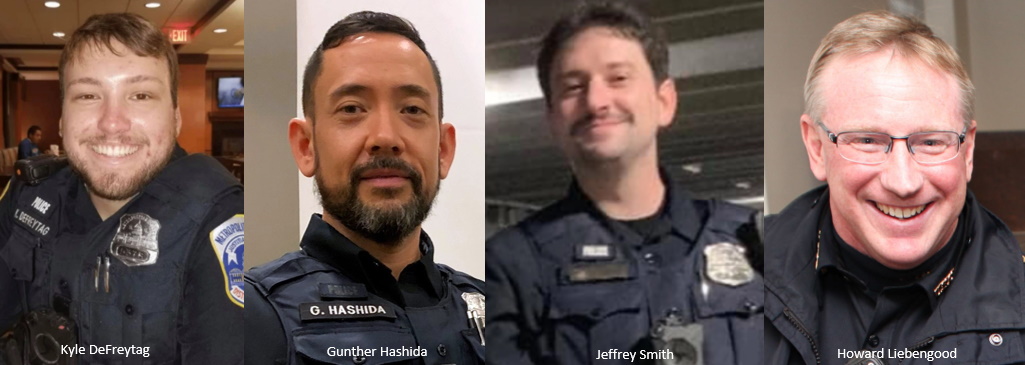D.C. mourns loss of multiple officers who responded to Capitol attack and later died by suicide
Six months after the US Capitol insurrection, a total of four DC police officers who responded to the incident have taken their own lives, CNN reports.
The news outlet lists the deceased officers as Gunther Hashida, Kyle DeFreytag, Jeffrey Smith, and Howard Liebengood.

According to Kristen Metzger, spokesperson for the Metropolitan Police Department: "Officer Gunther Hashida, assigned to the Emergency Response Team within the Special Operations Division, was found deceased in his residence on Thursday, July 29."
Metzger added, "We are grieving as a Department and our thoughts and prayers are with Officer Hashida's family and friends."
This tragic loss occurred nearly three weeks after Metropolitan Police Officer Kyle DeFreytag was found dead on July 10, according to department public information officer Sean Hickman.
Hashida joined the Metropolitan Police Department in 2003 and DeFreytag had been with the department since November 2016.
Trending News
Metropolitan Police Officer Jeffrey Smith committed suicide days after the insurrection. Smith had been on the force for a total of 12 years.
Officer Howard Liebengood, a 16-year Capitol Police veteran, also responded to the attack on the Capitol and died by suicide days after the event.
Another Capitol Police officer, Brian D. Sicknick, died of natural causes one day after the attack. Washington DC's chief medical examiner said Sicknick suffered from more than one stroke before passing away.
In July, Capitol Police Officer Harry Dunn addressed officers who responded to the insurrection at the Capitol, urging them to seek professional help if they felt the need to.
Dunn said, "I want to take this moment and speak to my fellow officers about the emotions they are continuing to experience from the events of January 6. There is absolutely nothing wrong with seeking professional counseling."
"What we all went through that day was traumatic, and if you are hurting, please take advantage of the counseling services that are available to us."
Survivors of traumatic incidents, such as mass shootings or acts of terror, often report experiencing suicidal thoughts and Post Traumatic Stress Disorder.
Some 28 percent of people who survive mass shootings in the United States develop post-traumatic stress disorder, according to the National Center for PTSD at the U.S. Department of Veterans Affairs, and research has tied PTSD to suicide, particularly when it’s paired with depression.
In a 2019 interview with news outlet VOA, a survivor of the 1999 school shooting at Columbine High School described the daily emotional challenges she faced after the traumatic incident, saying, "The pain is grinding, and it feels like it’s never going to stop.”
The survivor went on to say she was suicidal by the three-year anniversary of the devastating event at Columbine.
When the U.S. Capitol was stormed on January 6, 2021, about 1,100 District of Columbia National Guard members were mobilized to help support law enforcement at the Capitol.
Dozens of people were injured, including 138 officers.
To date, the Justice Department has charged more than 550 people in connection with the insurrection, according to CNN.


